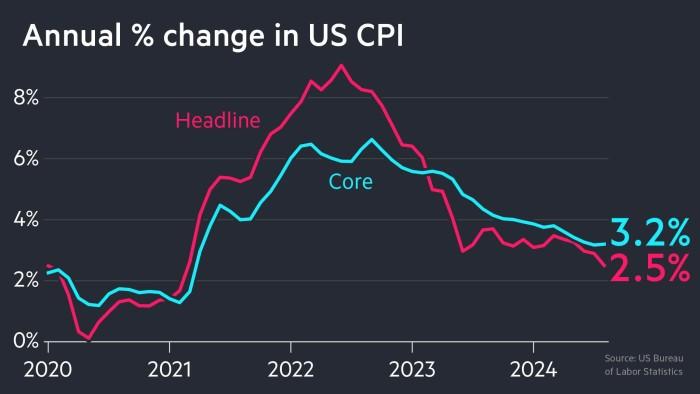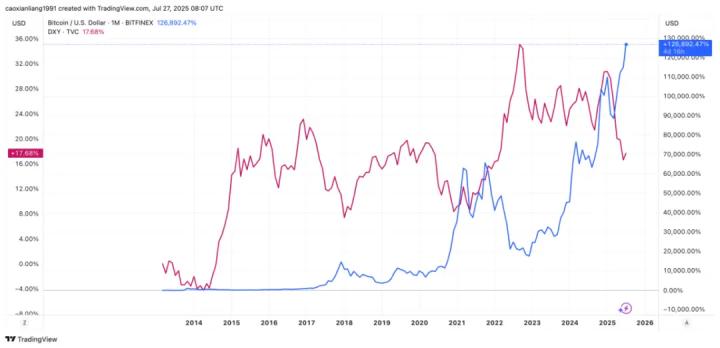Written by: Rana Foroohar
Translated by: Block unicorn
Last week, when I read that JPMorgan was considering lending against cryptocurrencies held by clients, my heart felt heavy, though we all know the day cryptocurrencies enter the real economy is inevitable.
Bitcoin, one of the digital assets banks might use as collateral, has been nearly four times as volatile as major indices since 2020. It is also associated with terrorism financing, and I have yet to read anything that makes me believe it is more than a tool for speculators and criminals. But when it has the largest political donors behind it, this almost doesn't matter.
Over the past few years, cryptocurrency political action committees have spent millions of dollars, donating not only to Republican politicians but also to many Democrats. This effort culminated a few weeks ago with the passage of the Genius Act. Legislation covering other crypto assets is expected later this year. I predict this will not only lead to the next financial crisis but will further fuel American populism and political turmoil.
This reminds one of 2000, when over-the-counter derivatives advocates flocked to Washington, requesting proper "regulation" so they could bring financial "innovation" to the world. The result was that the credit default swap market grew sevenfold under insufficient regulation, ultimately leading to the 2008 financial crisis.
Now consider that US Treasury Secretary Scott Bessent expects the stablecoin market to grow tenfold in the coming years, from an industry of nearly $200 billion to $20 trillion, permeating everything from loan underwriting to the government bond market.
As senior Senate Banking Committee member and Democrat Elizabeth Warren told me last week: "We've seen this movie before," with lobbyists saying "please regulate us" because they want the government to give them the golden label of "safe" investment, while politicians provide bipartisan support for deregulation.
In fact, you can clearly trace this back to the 2000 derivatives deregulation, the broader Clinton-era deregulation that weakened barriers between trading and lending, the 2018 weakening of Dodd-Frank regulations on regional banks (which facilitated the 2023 banking crisis), and now the Genius Act. All of this has been driven by both parties.
Warren was elected because voters felt betrayed by mainstream politicians, and she tried to persuade Democrats not to support the Republican backing of the Genius Act but was unsuccessful.
But money talks, and the cryptocurrency lobbying group has already shown enormous influence by spending $40 million to defeat critics like former Ohio Senate Banking Committee Chair Sherrod Brown. Although nearly two-thirds of Senate Democrats voted against the Genius Act, supporters—including influential Democratic senators like Mark Warner from Virginia and Kirsten Gillibrand from New York—were enough to pass the bill.
This gives me four reasons for concern.
First, the Genius Act (like the Commodity Futures Modernization Act of 2000) is promoted as a way to make cryptocurrencies safer, with stablecoins backed by dollars one-to-one.
But this doesn't make an inherently volatile asset class less volatile. In fact, it might only make the entire market more volatile. Advocates discuss cryptocurrencies like Bitcoin as a hedge against traditional markets, but in reality, Bitcoin is a "high-beta" investment, meaning it is highly correlated with the stock market. This means gains and losses relative to the S&P are amplified. Any beta value over one indicates higher market volatility. A recent Fidelity report found Bitcoin's three-year rolling beta to be 2.6.
Second, I believe encouraging financial "innovation" is worse-timed than ever, given such uncertain market, economic, and monetary policy conditions.
Imagine if in the next few months or years, the Federal Reserve must significantly raise interest rates to combat inflation, and markets crash, as always happens when rates rise. Cryptocurrencies would fall even deeper and faster. Financial institutions holding cryptocurrencies (including many shadow banks) might find themselves in trouble, leading to a credit market freeze.
Suddenly, we seem to see the shadow of 2008. This brings me to my third concern. Genius Act supporters claim it will support the US dollar and US Treasury market. But it's easy to imagine cryptocurrency companies like Tether (which holds more US Treasuries than Germany) having to sell Treasuries in a depressed market to cover redemption losses. Then you would see Treasuries being sold at a discount, borrowing costs rising, and another catastrophic situation where ordinary people would face pressure to bail out speculators.
But this time, it happens after decades of growing political skepticism. This also brings me to my final concern. The financial deregulation pushed by the Clinton administration in the late 1990s laid the groundwork for the 2008 financial crisis and the Democratic Party's loss of working-class support. This, in turn, paved the way for Trump's rise.
Trump is now laying the groundwork for our next financial crisis by supporting (and of course, trading) cryptocurrencies. What happens when we fall into financial chaos, voter skepticism of mainstream politics deepens, and the government's interest and ability to buffer economic recession weakens? There will be no cryptocurrencies, and no stability.







